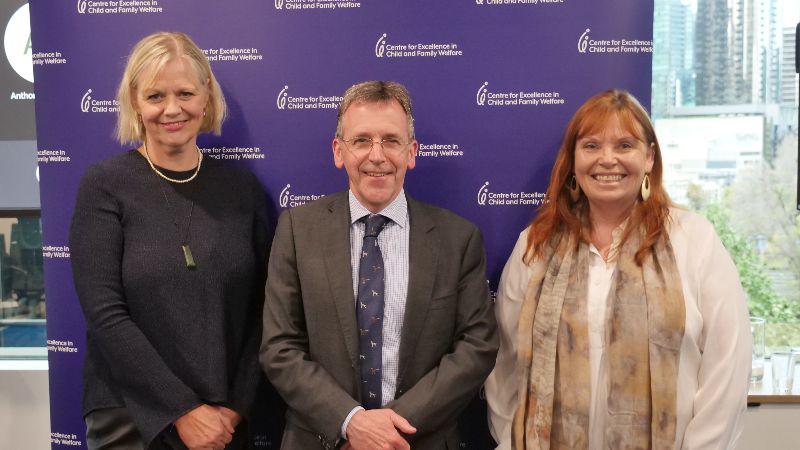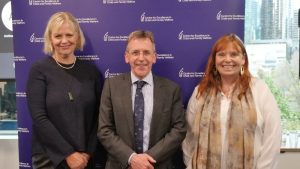Summary
A recap of the Centre's Anti-Poverty Event, including video recordings and recommendations from experts.
Event recap and recordings
The Centre, together with Uniting Vic.Tas and Family Care, marked the opening of Anti-Poverty Week last week with a discussion on the big question: “Why does Australia still accept child poverty, and what can be done about it?”
The Centre’s CEO Deb Tsorbaris opened the event by sharing examples of the many levers that Government can, and has in the past, pulled that might eradicate child poverty. “We’ve seen solutions implemented before, and we know the profound impacts lifting families out of poverty will have on the lives and wellbeing of children who are living below the poverty line,” she says. Read her blog outlining the 6 steps toward ending child poverty in Australia here.
The recordings from the amazing lineup of speakers can be viewed on Youtube.
- Our Keynote Speaker, ANU Children’s Policy Centre Director Prof. Sharon Bessell shared her research process and findings, and the importance of listening to children impacted by poverty and recognising that poverty is a structural and not an individual issue. She also talked about the importance of policies and practices being child-inclusive and child-centred.
- Uniting Vic Tas CEO Bronwyn Pike talked of Uniting’s leading work in reducing and eliminating poverty in Victorian communities. She said “…the findings [about Poverty] might be new but the solutions are the same and we need governments to implement these solutions.”
- Family Care CEO David Tennant talked about the fact that poverty in Australia is a direct policy choice that is made by Governments.
- Council of Single Mothers & their Children CEO Jenny Davidson talked of the impacts of poverty on single mothers and their children, highlighting specifically the inequities in access to education for single mothers and their children experiencing the impacts of poverty.
- Swinburne University of Technology Prof. Kay Cook talked about the weaponisation of the Child Support Scheme and how it can be used to financially abuse women, and the devastating impacts of this abuse on mothers’ and children’s lives.
What are we going to do about child poverty in Australia?
- Make a commitment that child poverty must stop – Mr Tennant encouraged the child and family services sector to get behind efforts of the Treating Families Fairly and make it a collective action, recognising that poverty is a structural issue. More information on the Treating Families Fairly alliance and information on how to join can be found here.
- Adopt legislation that requires the counting and reporting of child poverty statistics – In New Zealand, the Child Poverty Reduction Act (2018) has focused attention in a national way on an issue that would not be as prominent if there wasn’t a legislated requirement to keep counting and reporting. Anti-Poverty Week organisers are calling for the Government to pass a Child Poverty Reduction Act through a petition with the Valuing Children Initiative here.
- Add measures of poverty, child poverty and targets to Australia’s Wellbeing Framework – The development of Australia’s wellbeing framework was fantastic, but it is absent of mentions of poverty and specifically mentions of child poverty. For the framework to be meaningful, it must have targets and the Government must aspire to work toward those targets.
- Amend section 8 of the Social Security Administration Act to make the safety and wellbeing of children one of the principles of that Act – Australia’s social security legislation barely mentions children other than in benefits for young people who are unable to live at home because it’s unsafe for them to do so, or as criteria for the eligibility of their parents or carers to access benefits. This is not good enough. Making the safety and wellbeing of children a core principle of the Act will make a difference to how the legislation is implemented.
- Remove structural inequities in the child support system. – The system does almost nothing to help women and penalises them if they are unable to make it work themselves, which is fundamentally unfair.
- Include children in conversations about funding and service delivery. ANU’s Prof. Sharon Bessell has shared the importance of including children’s experiences of poverty when we shape legislation and services, and the need to give children the opportunity to reflect on the impact of poverty on their lives and what they would have if life was to be good rather than perpetually tough.
Read and share these recommendations here.
CEO Deb Tsorbaris, CEO David Tennent and Professor Sharon Bessell.







